Calendar of events, awards and opportunities
Every week, we update this list with new meetings, awards, scholarships and events to help you get your ducks in a row. If you’d like us to feature something that you’re offering to the bioscience community, email us with the subject line “For calendar.” ASBMB members’ offerings take priority, and we do not promote products/services. Learn how to advertise in ASBMB Today.
March 16: Funding opportunity for rare disease research
We learned about a call for proposals from the Clayco Foundation to support investigators conducting research of retinal vasculopathy with cerebral leukoencephalopathy, or RVCL, an ultra-rare fatal vasculopathy that leads to brain lesions (strokes, visual impairment, dementia) and multiorgan vascular damage. It is caused by autosomal dominant mutations within the C-terminal region of the TREX1 gene. Underlying pathology has been speculated to be a consequence of alterations in DNA damage repair, dysregulation of innate immune pathways, acceleration of cellular senescence, or dysregulated handling of cellular debris. See the CFP.
March 17: National Academies event "We See You"
Wendy Calhoun, a Peabody-winning writer and producer, and Vivian Pinn, director of the National Institutes of Health's Office of Research on Women's Health, will have a public discussion titled "We See You: The Power of Female STEM Role Models On and Off the Screen" at 4 p.m. Eastern on March 17. Here's what the email we received from the National Academies said: "This wide-ranging discussion will touch upon how writers for television and film develop characters that challenge stereotypes, the research on the powerful impact of role models in inspiring our next generation of scientists, and the very personal stories of struggle and triumph from a trail-blazing doctor who is a role model to so many." Register.

March 18: Twitter chat about COVID relief funding for junior scientists
The ASBMB policy team has recommended that Congress provide an additional year of funding for students and early-career researchers whose studies and work were negatively affected by the COVID-19 pandemic. The proposal specifically advocates for those whose grants expired in 2020. (Learn more in this article by Sarina Neote, ASBMB's science policy manager.) Follow ASBMB on Twitter (@asbmb) and join the conversation at 2 p.m. Eastern on March 18. We'll be using the hashtag #SupportNextGenSci. See the other chats we have planned.
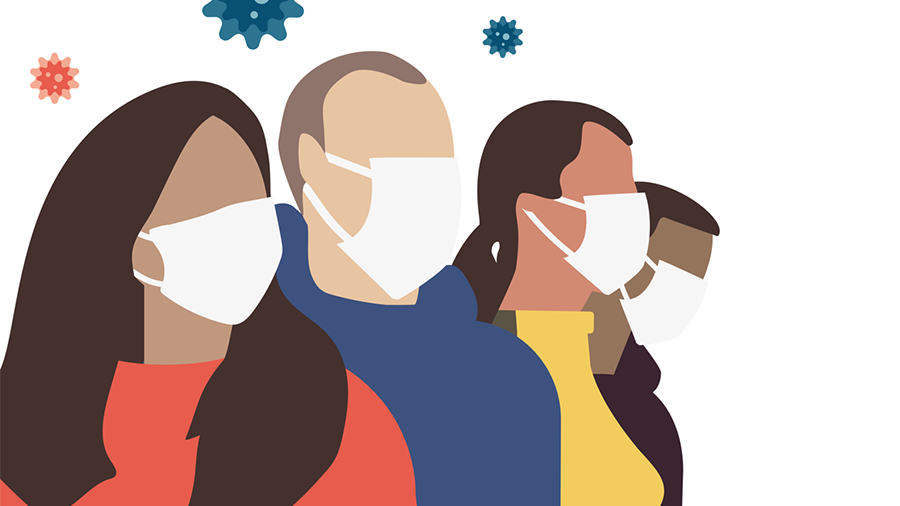
March 25: Twitter chat about the one-year mark for COVID
Since last March, we have found so much comfort in staying connected with our colleagues and members of the ASBMB community. As we cross the one-year mark of life during the COVID-19 pandemic, we want to know: How are you? How has your life changed? Where do you stand with your research, education and/or career goals? What have you learned? We invite you to share your experiences or just be a good listener. Follow ASBMB on Twitter (@asbmb) and tune in at 2 p.m. Eastern on March 25. We'll be using the hashtag #ASBMBCheckIns. See the other chats we have planned.
March 30: Regulatory mechanisms in the control of oxygen intake and blood pressure
This is a free webinar by the American Physiological Society, one of our sister societies. It'll be moderated by Ole H. Petersen of Cardiff University and have talks by Jose Lopez–Barneo of the University of Seville Medical School and David M. Pollock of the University of Alabama at Birmingham. It's at 11 a.m. Eastern on March 30. Register.
March 31: Deadline for Lasker essay contest
The Lasker Foundation's annual essay contest is now accepting submissions. It's open to all biomedical and public health students, including graduate and medical students, and postdocs and offers a $5,000 prize. This year's prompt asks: "What is the most important scientific lesson you have learned from the COVID-19 pandemic? Discuss how that lesson will influence your research work and/or career." Submit your 800-word essay by March 31. Learn more.
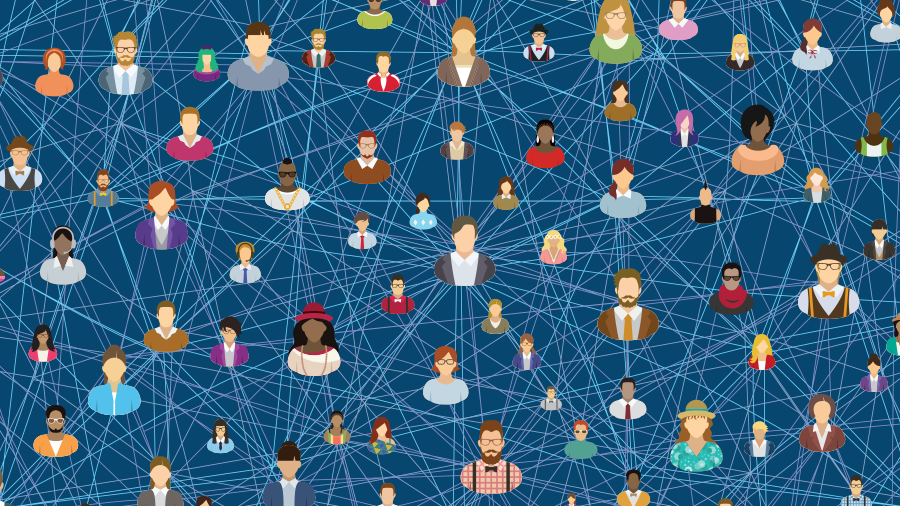
Call for virtual scientific event proposals
The ASBMB provides members with a virtual platform to share scientific research and accomplishments and to discuss emerging topics and technologies with the BMB community.
The ASBMB will manage the technical aspects, market the event to tens of thousands of contacts and present the digital event live to a remote audience. Additional tools such as polling, Q&A, breakout rooms and post event Twitter chats may be used to facilitate maximum engagement.
Seminars are typically one to two hours long. A workshop or conference might be longer and even span several days.
Prospective organizers may submit proposals at any time. Decisions are usually made within four to six weeks.
April 11: Industry mentoring program deadline
In October, ASBMB Today industry careers columnist Courtney Chandler interviewed Brandon Anjuwon–Foster about his career path. One of the steps toward industry that he took was participating in the program we're advertising here: the Scientist Mentoring & Diversity Program. The program has two tracks — biotech and medtech — and offers a year of mentoring for diverse undergraduate and graduate students and for early-career scientists. There's five-day training session, and the participants are paired with industry mentors. Learn more and apply by April 11.

April 12: Early registration deadline for the ASBMB annual meeting
The 2021 ASBMB Annual Meeting, held in conjunction with Experimental Biology, offers unmatched opportunities to showcase your work, learn from other scientists about their latest findings and expand your professional circle. Don’t miss this opportunity to engage with scientists from around the globe!
Scientific and education sessions: Start planning how you'll spend your time at the meeting. These events have been curated by pioneers and innovators.
Award lectures: These 12 outstanding professionals are being recognized by their peers for contributions to their fields, education and diversity.
April 12: Nominations for C&EN's Talented 12 program due
C&EN’s Talented 12 program, now in its seventh year, showcases the brightest minds who are doing the cutting-edge science to tackle a global challenge. C&EN is seeking nominations for early-career candidates who are doing impactful research. The program is sponsored by Thermo Fisher Scientific. Nominate.
April 14: How to create an engaging video abstract
The American Society for Cell Biology is hosting a webinar titled "Science Sketches: How to Create an Engaging Video Abstract" at 2 p.m. Eastern on April 14. This is especially good for those of you who are giving prerecorded poster talks at the ASBMB annual meeting and those of you who are interested in science outreach and communication. The speakers at this webinar are Lisa Dennison of the University of Texas Southwestern Medical Center and Liam Holt of New York University. They're the co-founders of Science Sketches, a website with short, accessible videos about research. Register.
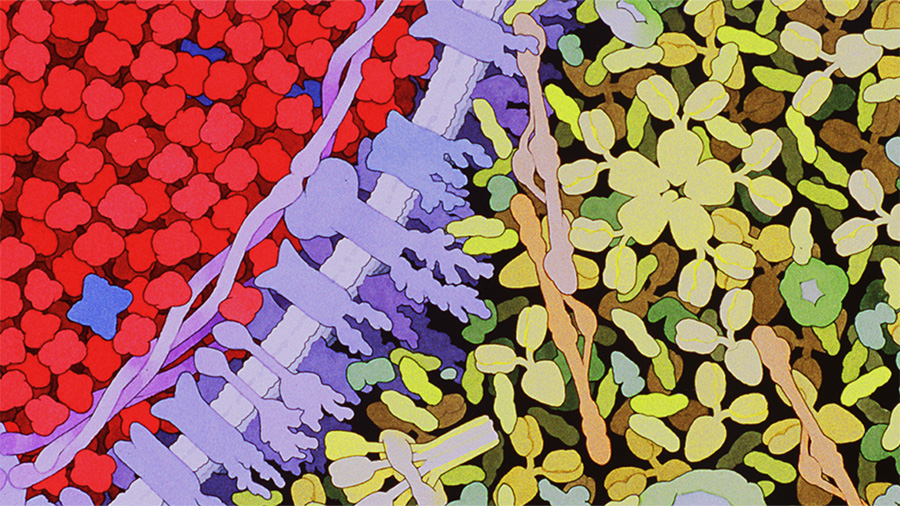
May 4–5: Celebrating the 50th anniversary of the PDB
This celebration of the 50th anniversary of the founding of the Protein Data Bank as the first open-access digital data resource in biology will include presentations from speakers from around the world who have made tremendous advances in structural biology and bioinformatics. Students and postdoctoral fellows are especially encouraged to attend and will be eligible for poster awards. Learn more.

May 5: Deadline for ASBMB annual award nominations
The ASBMB Annual Awards are given to outstanding professionals who have been recognized by their peers for contributions to their fields, education and diversity. The recipients will give talks about their work at the 2022 ASBMB Annual Meeting. You can nominate or self-nominate. See a list of available awards and prepare your nomination package.
May 31: Application deadline for IUBMB editorship
The International Union of Biochemistry and Molecular Biology is seeking a new editor for its journal Biotechnology and Applied Biochemistry. The editor has a three-year term. Applications are due May 31. See the job description and application instructions.

June 20–25: Teaching science with big data
This international meeting guides faculty on how to teach using web-based, free-access large data sets. How big is "big data"? Data that is so large, fast or complex that it's difficult or impossible to process using traditional methods. Join us to learn these valuable teaching skills to prepare students for the future. Sponsored by the ASBMB and the International Union of Biochemistry and Molecular Biology. Registration and abstract submission opening soon.
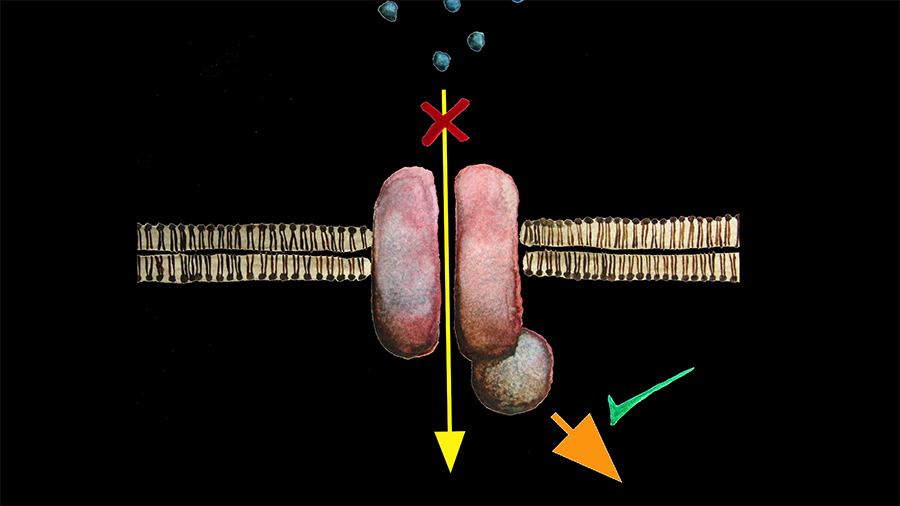
June 21: Flux-independent signaling by ionotropic receptors
Save the date for the virtual event "Flux-independent signaling by ionotropic receptors: Unforeseen roles and complexities" on June 21. The organizers say it will be of interest to neuroscientists, cell biologists, molecular biologists and biochemists, among others, involved in the study of cell physiology and function in health and disease. We'll update this item as soon as we know about the abstract and registration deadline. In the meantime, read the event description.
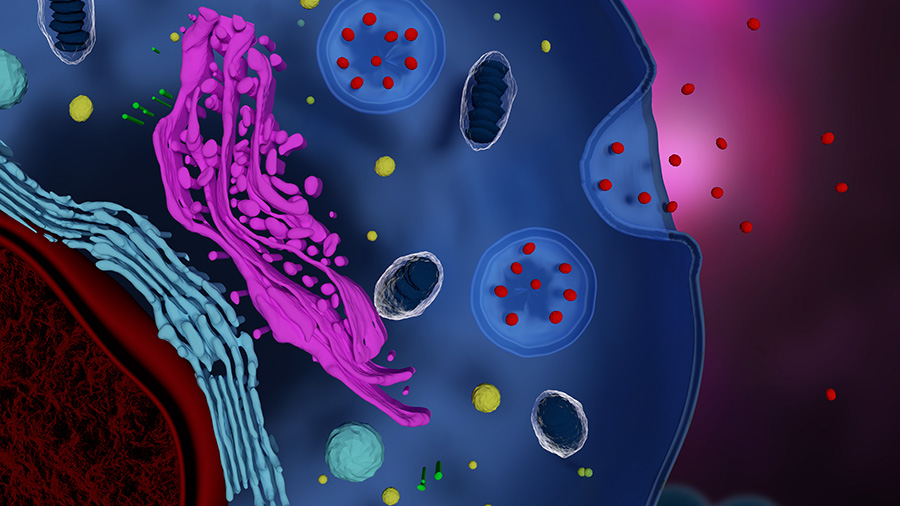
July 21–23: Extracellular vesicle studies: From benchtop to therapeutics
Extracellular vesicles are secreted, membrane-bound compartments containing DNA and cytoplasmic constituent molecules of all types that are thought to act as mediators of intercellular communication. They are classified by both size and location/mechanism of cellular origination. They are thought to be produced by an ever-expanding diversity of cell types and species. However, there is also considerable skepticism related to their existence and utility, as it can be difficult to isolate EVs since there is no EV-specific molecular marker to target. (Editor's note: See this ASBMB Today feature on EVs by former science writer Rajendrani Mukhopadhyay.)
A primary focus in recent years has been to describe the mechanisms of molecular sorting that would allow researchers to target proteins produced from exogenously introduced DNA to EVs for cellular secretion and uptake. The potential value of EVs to therapeutics is thought to be enormous, thanks to the role of EVs in cell–cell communication as a robust, native delivery vehicle.
This event will appeal to a broad audience, including molecular biologists, biochemists, biophysicists, secretion experts, cell–cell communication specialists, clinicians, physiologists and others. Submit an abstract by May 27. The early registration deadline is June 25, and the regular registration deadline is July 16. Visit the event homepage.
Enjoy reading ASBMB Today?
Become a member to receive the print edition four times a year and the digital edition monthly.
Learn moreFeatured jobs
from the ASBMB career center
Get the latest from ASBMB Today
Enter your email address, and we’ll send you a weekly email with recent articles, interviews and more.
Latest in Careers
Careers highlights or most popular articles

From humble beginnings to unlocking lysosomal secrets
Monther Abu–Remaileh will receive the ASBMB’s 2026 Walter A. Shaw Young Investigator Award in Lipid Research at the ASBMB Annual Meeting, March 7-10 in Washington, D.C.

Chemistry meets biology to thwart parasites
Margaret Phillips will receive the Alice and C. C. Wang Award in Molecular Parasitology at the ASBMB Annual Meeting, March 7-10 in Washington, D.C.

Decoding how bacteria flip host’s molecular switches
Kim Orth will receive the Earl and Thressa Stadtman Distinguished Scientists Award at the ASBMB Annual Meeting, March 7–10, just outside of Washington, D.C.

Defining JNKs: Targets for drug discovery
Roger Davis will receive the Bert and Natalie Vallee Award in Biomedical Science at the ASBMB Annual Meeting, March 7–10, just outside of Washington, D.C.

Upcoming opportunities
No matter where you are in your career and what future path you aspire to, everyone needs leadership skills. Join ASBMB for practical strategies for building and practicing leadership skills.

Close out ASBMB 2026 with a bang
The closing reception of the 2026 ASBMB Annual Meeting will be held at the Torpedo Factory Art Center in Alexandra, Virginia.
